 W
WAguardiente, in Spanish, or aguardente, in Portuguese is a generic term for alcoholic beverages that contain between 29% and 60% alcohol by volume (ABV). It originates in the Iberian Peninsula, as well as Iberian America.
 W
WAssimilado is the term given to African subjects of the colonizing Portuguese Empire from the 1910s to the 1960s, who had reached a level of "civilization", according to Portuguese legal standards, that theoretically qualified them for full rights as Portuguese citizens. Portuguese colonizers claimed as the goal for their assimilation practices, the "close union of races of different degrees of civilization that help and support each other loyally"; however, this notion of a "close union" differed from its practical application in the cultural and social spheres of the colonies of Portuguese Angola, Portuguese Mozambique and Portuguese Guinea.
 W
WThe Bandeirantes, literally "flag-carriers", were slavers, explorers, adventurers, and fortune hunters in early Colonial Brazil. They are largely responsible for Brazil's great expansion westward, far beyond the Tordesillas Line of 1494, by which Pope Alexander VI divided the new continent into a western, Castilian section, and an eastern, Portuguese section.
 W
WThe brinquinho is a musical instrument from Madeira, Portugal. It's the main musical instrument used in the Folklore dance the Bailinho da Madeira.
 W
WCachaça is a distilled spirit made from fermented sugarcane juice. Also known as pinga, caninha, and other names, it is the most popular spirit among distilled alcoholic beverages in Brazil. Outside Brazil, cachaça is used almost exclusively as an ingredient in tropical drinks, with the caipirinha being the most famous cocktail. In Brazil, caipirinha is often paired with the dish feijoada.
 W
WCaipirinha is Brazil's national cocktail, made with cachaça, sugar, and lime. The drink is prepared by mixing the fruit and the sugar together, then adding the liquor. This can be made in a single large glass to be shared among people, or in a larger jar, from which it is served in individual glasses.
 W
WCante Alentejano is a Portuguese music genre based on vocal music without instrumentation from the Alentejo region. It was inscribed in 2014 in UNESCO's Representative List of the Intangible Cultural Heritage of Humanity, one of two Portuguese music traditions, the other being Fado. Its origins come from a similar popular music genre created in the region of Minde by campinos. It is said that the habit of singing without instruments was common in bullherding as a means to coordinate efforts among the campinos.
 W
WCapoeira is a Brazilian martial art that combines elements of dance, acrobatics, and music. It was practiced by enslaved Africans in Brazil at the beginning of the 16th century. It is known for its acrobatic and complex maneuvers, often involving hands on the ground and inverted kicks. It emphasizes flowing movements rather than fixed stances; the ginga, a rocking step, is usually the focal point of the technique. The most widely accepted origin of the word capoeira comes from the Tupi words ka'a ("forest") paũ ("round"), referring to the areas of low vegetation in the Brazilian interior where fugitive slaves would hide. A practitioner of the art is called a capoeirista.
 W
WCaralho is a vulgar Portuguese-language word with a variety of meanings and uses. Literally, it is a noun referring to the penis, similar to English dick, but it is also used as an interjection expressing surprise, admiration, or dismay in both negative and positive senses in the same way as fuck in English. Caralho is also used in the intensifiers para caralho, placed after adjectives and sometimes adverbs and nouns to mean "very much" or "lots of", and do caralho, both of which are equivalent to the English vulgarities fucking and as fuck.
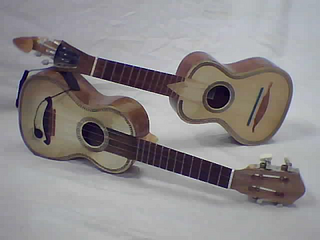 W
WThe cavaquinho is a small Portuguese string instrument in the European guitar family, with four wires or gut strings.
 W
WConquistadors or conquistadores were the invaders, knights, soldiers, and explorers of the Spanish and the Portuguese Empires. During the Age of Discovery, conquistadors sailed beyond Europe to the Americas, Oceania, Africa, and Asia, colonizing and exploiting territory and opening trade routes. They brought colonialism to much of the world for Spain and Portugal in the 16th, 17th, and 18th centuries.
 W
WThe Second Portuguese Republic, or more commonly known as Estado Novo, was the corporatist regime installed in Portugal in 1933. It evolved from the Ditadura Nacional formed after the coup d'état of 28 May 1926 against the democratic and unstable First Republic. Together, the Ditadura Nacional and the Estado Novo are recognised by historians as the Second Portuguese Republic. The Estado Novo, greatly inspired by conservative and autocratic ideologies, was developed by António de Oliveira Salazar, who was President of the Council of Ministers from 1932 until illness forced him out of office in 1968.
 W
WFajã is a Portuguese term of obscure origin. It is a term used to describe supratidal talus-platform geology constructed from landslides or lava flows, which are relatively common coastal features, that occur on the toe of cliffs. Although they exist throughout the world, they are distinct features of the islands of the Azores and Madeira, as well as of the Canary Islands, where the equivalent term in Canarian Spanish is fajana. The term also designates a flat land of small extension, generally located by the sea and cultivable, formed of materials detached from the cliffs. Another Canarian word for lava fajanas is isla baja, literally, "low island".
 W
WFeijoada is a stew of beans with beef and pork. The name feijoada comes from feijão, 'bean' in Portuguese. It is widely prepared in the Portuguese-speaking world, with slight variations.
 W
WA levada is an irrigation channel or aqueduct specific to the Portuguese Atlantic region of Madeira.
 W
WMameluco is a Portuguese word that denotes the first generation child of a European and an Amerindian. It corresponds to the Spanish word mestizo.
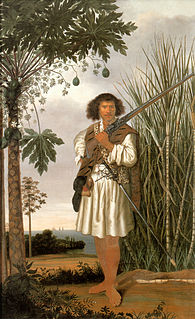 W
WMestiço, in Colonial Brazil, was initially used to refer to mamelucos, persons born from a couple in which one was an Indigenous American and the other a European. It literally translates as "mameluke", probably referring to the common Iberian comparisons of swarthy people to North Africans.
 W
WA military junta is a government led by a committee of military leaders. The term junta means "meeting" or "committee" and originated in the national and local junta organized by the Spanish resistance to Napoleon's invasion of Spain in 1808. The term is now used to refer to an authoritarian form of government characterized by oligarchic military dictatorship, as distinguished from other categories of authoritarian rule, specifically strongman ; machine ; and bossism.
 W
WA mistério is a Portuguese-language term designating a volcanic eruption or a product of such which occurred after human occupation of the area. This term is applied particularly to the Central Group of the Azores. These habitats have little to no vegetation, depending on the time of the eruption, though some might be arable.
 W
WIn the English language, negro is a term historically used to denote persons considered to be of Black African heritage. The term can be construed as offensive, inoffensive, or completely neutral, largely depending on the region or country where it is used. It has various equivalents in other languages of Europe.
 W
WPaçoca is a candy made out of ground peanuts, sugar and salt. Some recipes also add flour, such as corn flour, oat flour or cassava flour. It is typical of the Brazilian Caipira cuisine and most present in the countryside of southeastern states of São Paulo and Minas Gerais, being either manufactured or home-made. It is also very common during the Festa Junina, an annual festivity that celebrates the caipira lifestyle. It is known for its distinct dry texture and sweet taste, and is one of the most beloved Brazilian candies.
 W
WPão de queijo or Brazilian cheese bread is a small, baked cheese roll or cheese bun, a popular snack and breakfast food in Brazil. It is a traditional Brazilian recipe, originating in the state of Minas Gerais.
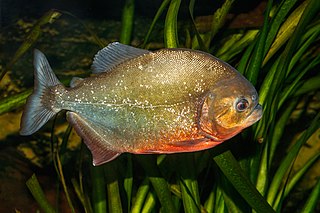 W
WA piranha or piraña, a member of family Serrasalmidae, or a member of the subfamily Serrasalminae within the tetra family, Characidae in order Characiformes, is a freshwater fish that inhabits South American rivers, floodplains, lakes and reservoirs. Although often described as extremely predatory and mainly feeding on fish, their dietary habits vary extensively, and they will also take plant material, leading to their classification as omnivorous.
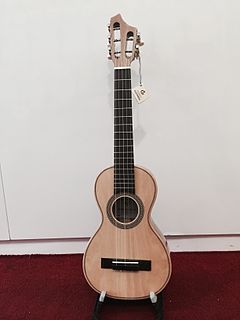 W
WThe rajão is a 5-stringed instrument from Madeira, Portugal. The instrument traces back to the country's regional folk music, where it is used in folklore dances of Portugal in addition to other stringed instruments from the same region.
 W
WA ria is a coastal inlet formed by the partial submergence of an unglaciated river valley. It is a drowned river valley that remains open to the sea. Typically, rias have a dendritic, treelike outline although they can be straight and without significant branches. This pattern is inherited from the dendritic drainage pattern of the flooded river valley. The drowning of river valleys along a stretch of coast and formation of rias results in an extremely irregular and indented coastline. Often, there are naturally-occurring islands, which are summits of partly submerged, preexisting hill peaks.
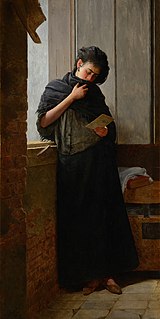 W
WSaudade is a deep emotional state of nostalgic or profound melancholic longing for something or someone that one cares for and/or loves. Moreover, it often carries a repressed knowledge that the object of longing might never be had again. It is the recollection of feelings, experiences, places, or events that once brought excitement, pleasure, and well-being, which now trigger the senses and make one experience the pain of separation from those joyous sensations. Saudade describes a feeling both happy and sad, and might be most closely related to the English expression ‘bitter sweet’.
 W
WA stevedore, also called a longshoreman, a docker or a dockworker, is a waterfront manual laborer who is involved in loading and unloading ships, trucks, trains or airplanes.
 W
WViva, vive, and vivat are interjections used in the Romance languages. Viva in Spanish, Portuguese, and Italian, Vive in French, and Vivat in Latin are subjunctive forms of the verb "to live." Being the third-person, subjunctive present conjugation, the terms express a hope on the part of the speaker that another should live. Thus, they mean "(may) he/she/it/they live!" and are usually translated to English as "long live."